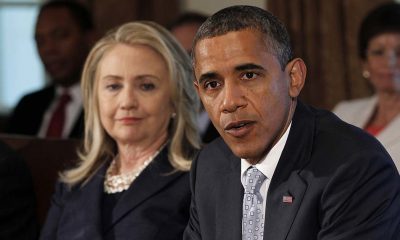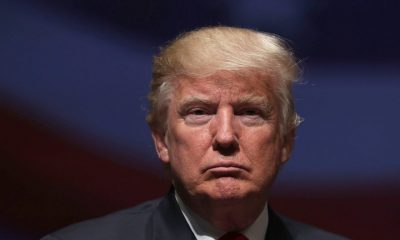World
India very high on Obama’s list of US investments abroad

Washington: India is very high on the US list for investments in foreign countries as economic growth across the world remains a priority for President Barack Obama, according to the White House.
“In terms of the US-India partnership, …the president is very enthusiastic about the prospect of increased collaboration, increased economic growth for American companies, and investments in India,” press secretary Eric Schultz told reporters Wednesday.
“I think you heard that from his recent trip there a few months ago,” he said when asked if Vice President Joe Biden was carrying a message from Obama at a recent conference where it was revealed that Indian companies had invested $15 billion in the US and created over 100,000 jobs in the US.
“But just because he is not over there right now, that doesn’t mean we don’t have key members of our team working on this,” Schultz said.
“So economic growth across the country remains — across the world, remains a priority for this president and oftentimes that manifests itself in investments in foreign countries,” he said. “And India is very high on that list.”
Asked how the US Export-Import Bank is playing a role in US-India trade relations, Schultz said he didn’t “have specifics on how any specific loans or support structures that Ex-Im has offered American companies, specifically for business in India”.
“I think generally speaking, the reason that Republicans and Democrats support Ex-Im Bank is because it is an engine of economic growth and American jobs for American companies here at home,” he said.
Schultz comments on the Export-Import Bank came after the Republican controlled House of Representatives passed a highway funding bill without a measure to reauthorise the US’s export credit agency.
Conservatives in the House have opposed the move to renew the Ex-Im Bank’s charter expiring on July 31, calling it a symbol of corporate welfare.
Ex-Im, which is supported by the US Chamber of Commerce and major corporations such as Boeing and General Electric, provided $27.4 billion in financing to support US exports in fiscal year 2014, according to the credit agency.
World
Lockdowns in China Force Urban Communities to Defy Censorship and Vent Frustration Online

Shanghai’s rich middle class is leading a wave of online dissent over the strict and prolonged lockdowns imposed in various parts of the country. Chinese internet censorship is struggling as patience is wearing thin in many urban centers, coming up with creative forms of online protests.
Social Media Posts Revealing Lockdown Tension in Shanghai
Drawn-out lockdowns are nothing new in China as authorities insist with the nation’s zero-Covid policy since the start of the pandemic. Currently over This time around, however, metropolitan areas like Shanghai are increasingly difficult to keep quiet, given that its more than 25 million residents have seen weeks of total isolation along with food shortages and many other service interruptions.
Dozens of towns and reportedly over 300 million Chinese citizens have been affected by lockdowns of different severity. As expected, urban netizens have been most outspoken over their difficulties by finding creative ways to get around state censorship and bans placed on topics, news comments and spontaneous campaigns.
Shanghai residents have been using mobile proxies and hijacking seemingly unrelated hashtags to talk about healthcare issues, delivery failures and the overall severity of their situation. The “positive energy” that the Chinese government wants to transmit during the recent prolonged series of lockdowns does not come naturally to those counting food supplies and online censors are working hard to filter words, trending topics and undesired social media sharing.
WeChat groups and message threads are under constant monitoring. Posts questioning the zero-Covid approach have been quickly deleted, including by leading Chinese health experts like Dr. Zhong Nanshan. Video footage is soon censored and protests and investigations are quickly made to disappear.
Where this has not worked, officials have exposed banners with warnings and outright threats like “watch your own mouth or face punishment”, while drones have been patrolling the city skies. Yet, if anything, this has led to further tensions and unspoken confrontation with Shanghai’s educated and affluent middle class.
Creative Online Solutions Harnessing Civic Energy
Announcements by Chinese social media that they would be publishing the IP addresses of users who “spread rumors” have not helped either. Tech industry research has shown that much of Asia’s tech-savvy population has a habit of using mobile proxies and other privacy tools, quickly finding workarounds to browse the internet freely and talk to the world about the hottest topics.
The sheer volume of forbidden posts is already a challenge for the very censorship system, experts explain. Unable to track all trending hashtags, state workers overlook topics that speak about the US, Ukraine or other popular news. Linking human rights elsewhere to their situation, Chinese online dissidents establish their informal channels and “hijack” the conversation to share personal or publicly relevant information about the Covid suppression in their town.
Sarcastic and satirical posts still dominate. Others hope to evade the censors by replacing words from famous poems or the national anthem. One thing is certain – social media, when harnessed with the right creativity, has proven its ability to mount pressure on the government in even some of the most strictly controlled tech environments like China.























